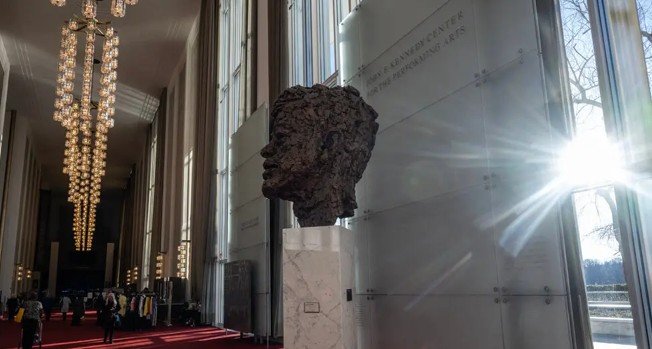Former President Donald J. Trump announced Friday that he intends to take direct control of the John F. Kennedy Center for the Performing Arts in Washington, D.C., by dismissing multiple board members and appointing himself as chairman.
“At my direction, we are going to make the Kennedy Center in Washington D.C., GREAT AGAIN,” Trump declared on Truth Social, his social media platform.
He further stated that he would “immediately terminate multiple individuals from the Board of Trustees, including the Chairman, who do not share our Vision for a Golden Age in Arts and Culture.” He added, “We will soon announce a new Board, with an amazing Chairman, DONALD J. TRUMP.”
The move, first reported by The Atlantic, sent shockwaves through the arts and culture community. However, sources close to Trump noted that he had long expressed interest in assuming the chairmanship of the Kennedy Center following his election victory.
Leadership Shake-Up and Political Undercurrents
The current chairman, financier and philanthropist David M. Rubenstein, has led the Kennedy Center for over a decade. Initially appointed by former President George W. Bush, Rubenstein had planned to retire in January 2025. However, after Trump’s election, the Kennedy Center extended his tenure until September 2026.
Rubenstein, who has hosted former President Joe Biden at his home, has also maintained a working relationship with Trump. In 2024, Trump participated in an interview for Rubenstein’s book on U.S. presidents.
The abrupt decision to overhaul the board took many by surprise. Several board members reported they had not been formally notified of their dismissal. However, at least one Biden-appointed trustee received an email from Sergio Gor, head of Trump’s presidential personnel office, informing them of their immediate termination.
The brief message read:
“On behalf of President Donald J. Trump, I am writing to inform you that your position on the Board of The Kennedy Center is terminated, effective immediately. Thank you for your service.”
The subject line simply read: “An Update from the White House.”
Kennedy Center’s Response and Legal Implications
The Kennedy Center issued a statement Friday evening acknowledging that some board members had received termination notices but stated that the institution itself had not been formally contacted by the White House.
“Per the Center’s governance established by Congress in 1958, the chair of the board of trustees is appointed by the center’s board members,” the statement read. “There is nothing in the center’s statute that would prevent a new administration from replacing board members; however, this would be the first time such action has been taken with the Kennedy Center’s board.”
The board currently consists of 36 members, evenly split between Republican and Democratic appointees, with members serving six-year terms. While the law does not explicitly grant the president authority to unilaterally dismiss board members, Trump’s move is part of a broader pattern in his second term of testing legal boundaries regarding appointments and dismissals.
A Break with Tradition
Trump’s push to reshape the Kennedy Center’s leadership marks a stark departure from precedent. Historically, the institution has maintained a tradition of bipartisanship and continuity in leadership. The move follows his administration’s recent decision to dissolve the President’s Committee on the Arts and the Humanities, part of a series of executive orders aimed at reversing the previous administration’s cultural policies.
During his first term, Trump notably declined to attend the Kennedy Center Honors, the institution’s signature event, after several honorees criticized him. His latest actions signal an intensified effort to reshape the country’s cultural institutions in line with his political vision.
While the Kennedy Center had recently expressed optimism about rekindling ties with the Trump administration—particularly through former First Lady Melania Trump, who serves as an honorary chair—Trump’s restructuring plan now casts uncertainty over the institution’s future leadership and direction.
Rubenstein has yet to publicly comment on the developments.


